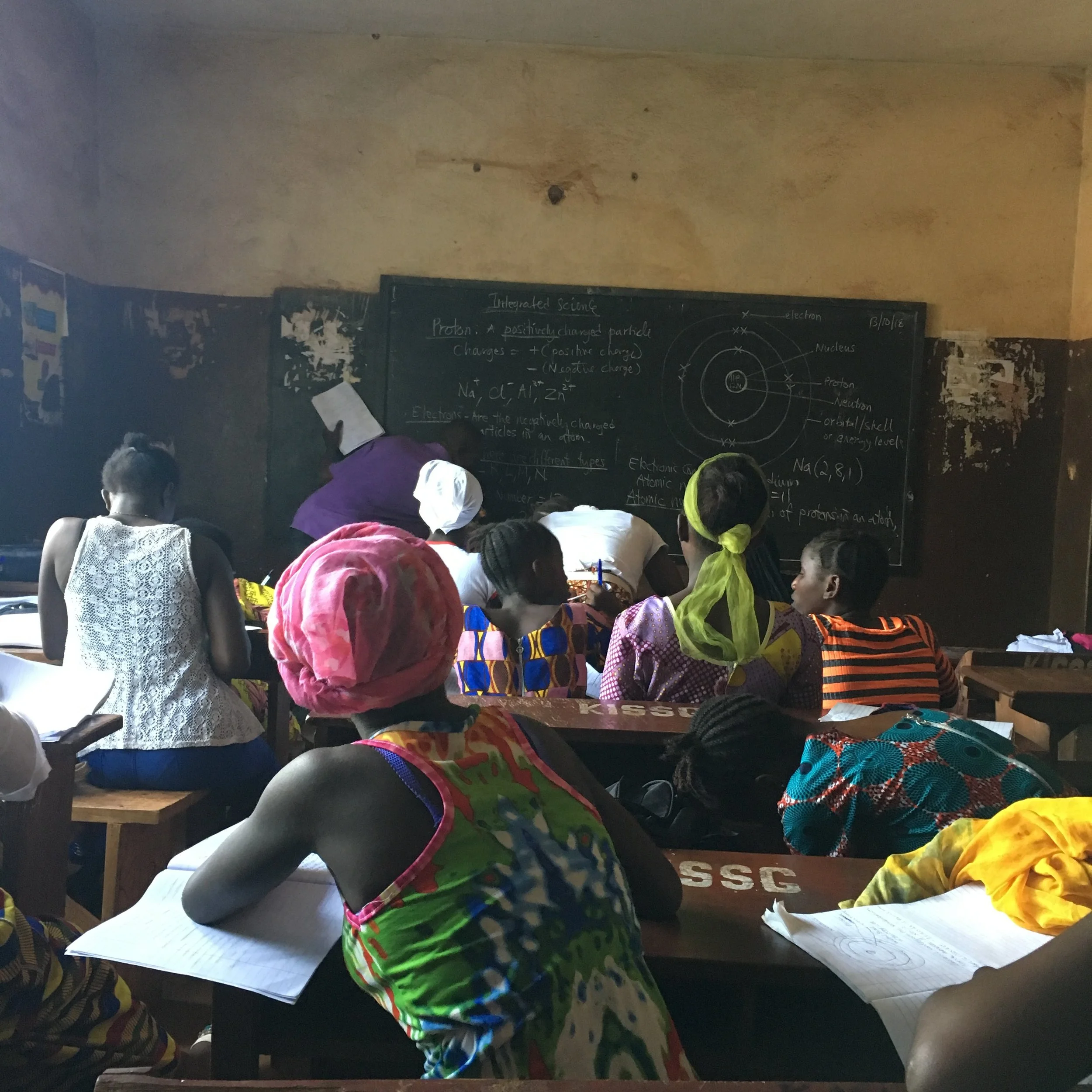Sierra Leone
The current picture
While brimming full of beauty, opportunity and natural resources the harsh reality is that many Sierra Leoneans face challenges on a daily basis including accessing education. After emerging from an 11 year civil war Sierra Leone has had to confront back to back natural disasters such as Ebola and the mudslide.
Despite these set backs, things are on the rise. Sexual violence was declared a public emergency in 2019 in an effort to offer females equal rights and education in state schools was also made free as of 2018.
These are promising initiatives, however they will take time to be implemented. In the mean-time equal access to education for girls remains an issue, this is why Keep it FAX continues to prioritise making quality education a reality for a targeted group of girls.
Why we do what We do
Sierra Leone is also the home of the founders family. On what led him to create the charity he says:
“It was after my very first trip to Sierra Leone. Having grown up in the UK, I wasn’t aware of how many family members I had until I actually got there. In a strange way it felt like home. However, at the same time I felt sad to see that so many family members would not have access to the same opportunities that I had growing up in the UK.
So, I started by doing collections whenever someone was heading to Sierra Leone or if I was going myself. I’d ask friends if they had stuff they didn’t need any more; clothes, music and books that we would distribute.
Eventually I decided I wanted to make it official and picked education, especially educating girls, as the cause I wanted to support. I chose Kankalay as the first school that we were going to support, because that’s where my mother went. She grew up balancing education and selling fish to support her family.
My life experiences have taught me that ignorance is one of the biggest obstacles preventing progress. From what I’ve seen in Sierra Leone I believe that having a solid education will give young people a fighting chance.”
Girls face an uphill battle
In 2019, only 41% of girls in Sierra Leone had at least some secondary education. This compares to 57% of Sierra Leonean boys and 82% of girls and 85% of boys in the UK. Though this has improved in the younger generation.
The primary barrier to girls completing their education in Sierra Leone was reported by Street Child to be income poverty. Sierra Leone is one of the poorest countries in the world, with a GDP of $534 per capita in 2018 (9th lowest in the world).
Furthermore the loss of the primary care giver, teenage pregnancy or teenage marriage were important reasons why girls dropped out of school. By the age of 18, 39% of women in Sierra Leone are married. Life expectancy at birth remains just over 50, meaning many caregivers will die before their children are grown. Unfortunately, 39% of school going age children (5-17) in Sierra Leone are already in the work force.
It has been repeatedly that educating women improves their situation and that of their families. For example, an educated woman will be better able to know when she or her child should seek medical care, and more able to earn a steady income for herself and her family.
References:
Street Child https://www.street-child.co.uk/sierra-leone
World Bank https://data.worldbank.org/country/Sierra-Leone
DHS 2019 https://dhsprogram.com/publications/publication-PR122-Preliminary-Reports-Key-Indicators-Reports.cfm


